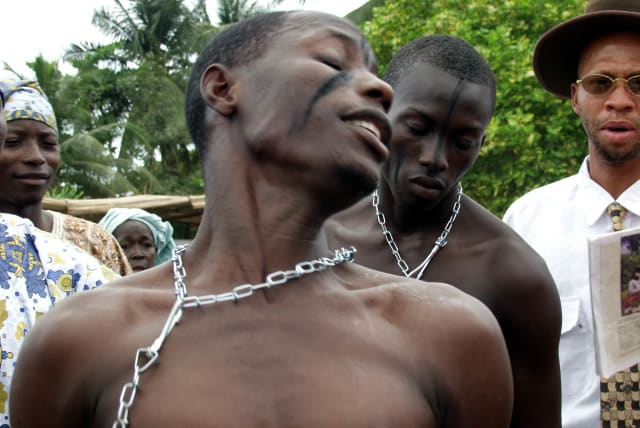Four people arrested for supposedly enslaving mentally disabled man for 17 years in Portugal

Four people were arrested in Portugal's northern Braganca region for enslaving a man for 17 years; the victim endured abuse, exploitation, and deprivation. Human trafficking concerns persist.
Portugal's criminal police agency said on Wednesday it had arrested four people on suspicion of holding a man in slavery-like conditions for 17 years in the country's northern region of Braganca.
In a statement, the police said the 54-year-old man suffered physical and psychological abuse over that period and was the victim of labor exploitation, including being "rented" out to third parties for agricultural work.
The victim, who has a learning disability and no family support, received no payment for his work, and his every move was controlled by the suspects, who had the victim's documents in their possession, the police said.
"He lived in a degrading situation, spending the night in a van ... without the minimum living, health, hygiene, and food conditions," the police said. "The defendants never allowed him to receive medical care - not even when he suffered a serious accident."
The victim, who has been left with permanent injuries that affect his mobility, eventually managed to escape and was now receiving specialized support, the police said.
Portugal's human trafficking
Those arrested, aged 37-44, will appear before a judge to be questioned on suspicion of crimes of slavery, human trafficking, and forgery. The police did not reveal the victim's nationality.
Cases of labor exploitation and human trafficking have been growing in Portugal, particularly in the agricultural sector. There have been several cases of poor migrants trapped in unpaid work on farms.
In November last year, hundreds of police raided farms in Portugal's southern Alentejo region, arresting 28 people suspected of human trafficking and labor exploitation.
The Council of Europe said in June 2022 that Portuguese authorities identified 1,152 presumed victims of trafficking in 2016-2020.
The number of investigations, prosecutions and convictions was low compared to the number of identified victims, the Council of Europe said at the time.
Jerusalem Post Store
`; document.getElementById("linkPremium").innerHTML = cont; var divWithLink = document.getElementById("premium-link"); if (divWithLink !== null && divWithLink !== 'undefined') { divWithLink.style.border = "solid 1px #cb0f3e"; divWithLink.style.textAlign = "center"; divWithLink.style.marginBottom = "15px"; divWithLink.style.marginTop = "15px"; divWithLink.style.width = "100%"; divWithLink.style.backgroundColor = "#122952"; divWithLink.style.color = "#ffffff"; divWithLink.style.lineHeight = "1.5"; } } (function (v, i) { });

